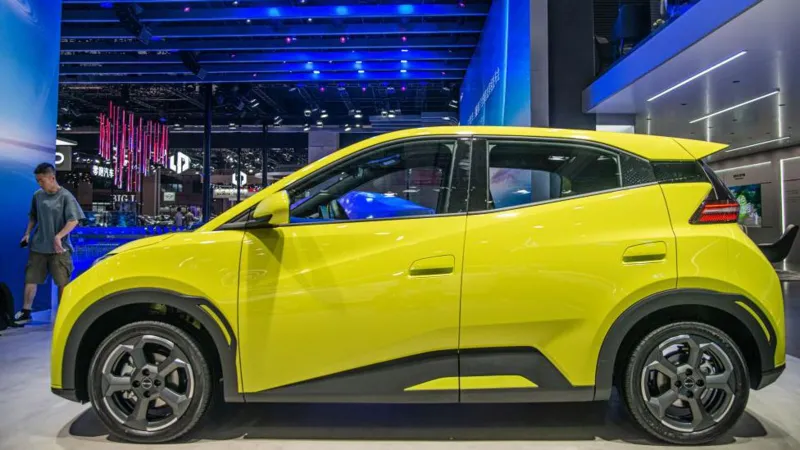Amid allegations that China is selling electric cars at artificially low prices, the European Union is widely expected to impose tariffs on them this week.
The BYD Seagull, a compact and affordably priced electric vehicle (EV), serves as a prime example. With a starting price of 69,800 yuan ($9,600; £7,500) in China, it’s anticipated that if introduced to Europe, its cost will at least double due to safety regulations. However, even at this higher price point, it would still be considered quite economical in the realm of electric cars.
This influx of competitively priced Chinese vehicles has raised concerns among European manufacturers, who fear that they may struggle to compete in their own markets against these new arrivals.
China’s rapid growth in the domestic auto industry, particularly in electric vehicles, has caused unease among policymakers in Europe and the US. They worry that Chinese brands, buoyed by significant subsidies, may undercut their domestic counterparts, making it difficult for them to compete.
In response to these concerns, the US recently increased tariffs on Chinese battery-powered cars from 25% to 100%. Similarly, the EU is expected to raise tariffs on imported EVs from China, possibly from the standard 10% to between 20 and 25%.
While these tariffs may offer some relief to European manufacturers, there are potential drawbacks. For instance, European companies that produce vehicles in China for export to Europe, such as BMW and Tesla, would also be subject to these tariffs.
Furthermore, there’s concern that if China were to retaliate with its own tariffs, it could negatively impact European exports to China.
Despite these challenges, European carmakers remain divided on the issue of tariffs. While some, like Volkswagen Group’s Oliver Blume, caution against the potential dangers of escalating trade battles, others, such as Mercedes-Benz’s Ola Källenius, advocate for lowering tariffs to encourage European companies to improve competitiveness.
Ultimately, the decision to impose tariffs on Chinese EVs will have far-reaching implications for the global automotive industry, and it remains to be seen how various stakeholders will navigate this complex issue.
